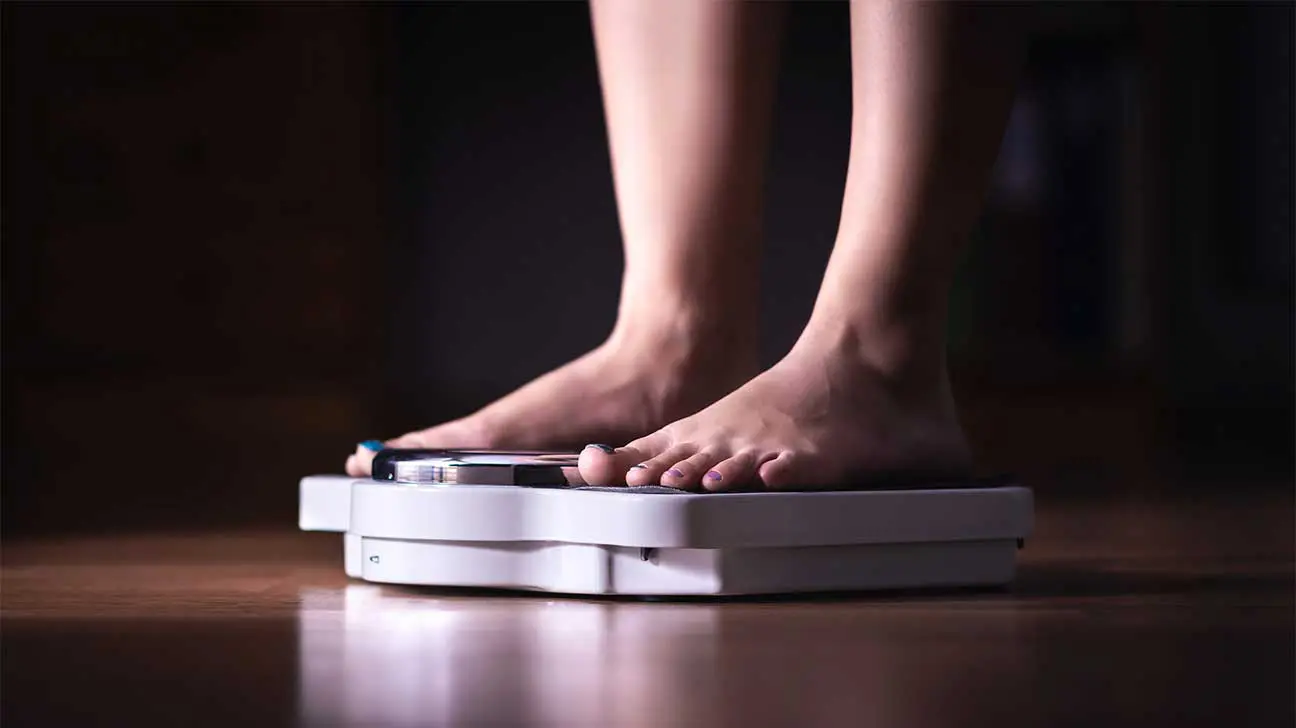
One of the potential side effects of Zubsolv is weight gain. This is not a very common side effect, but some people have reported gaining weight while using Zubsolv.
This weight gain usually occurs within the first six months of taking the medication and does not continue after that period.
Learn more about the side effects of Zubsolv
Weight Gain With Zubsolv
According to one study published by the U.S. National Library of Medicine, patients using daily doses of buprenorphine/naloxone at varying doses gained on average 10 pounds.
This weight gain happened over four months, with the average age of each participant 24 years old. It’s likely that if weight gain occurs, it will happen gradually.
Factors That Contribute To Weight Gain While Using Zubsolv
While the above study demonstrates a potential weight-gaining side effect of Zubsolv, this weight change is not necessarily directly due to the medication.
Certain lifestyle changes come with starting opioid treatment and recovering from addiction that may lead to changes in weight.
Changes In Diet May Cause Changes In Weight
When a person begins Zubsolv treatment for opioid use disorder (OUD), it’s likely they’ll also begin changes in their diet.
Many people start consuming a healthier diet when recovering from an OUD, which can cause weight changes. Even if the foods are healthier, bodies respond differently to diet alteration.
This weight gain is not necessarily a bad thing. It can be a healthy sign of recovery and positive lifestyle changes in opioid abuse treatment.
Weight Gain From Peripheral Edema
One of the major contributors to weight gain is swelling.
Zubsolv can cause a condition called peripheral edema, which is swelling of the hands and lower legs.
Zubsolv may disrupt your body’s balance of fluids in the cells and cause swelling.
Very mild cases of edema can happen in everyday life, such as after sitting for a long period of time. But edema caused by the use of Zubsolv can be more severe.
This build-up of extra fluids in the body can contribute to weight gain. This weight gain can happen very quickly and last as long as the edema persists.
Peripheral edema can also occur when there’s liver damage. Zubsolv has been linked to liver failure, so if you experience swelling of the extremities, watch for other symptoms of liver complications.
Pre-Existing Conditions Contribute To Weight Gain
Some preexisting conditions may contribute to weight gain while using Zubsolv.
Zubsolv may exacerbate existing mental illnesses such as depression and anxiety, which can contribute to a loss of appetite or difficulty eating.
Additionally, if you have an under-active thyroid gland you may experience increased weight gain during Zubsolv treatment.
An under-active thyroid gland will result in a slowed metabolism. This means the body is not processing foods fast enough, and mild weight gain of about five to 10 pounds can occur.
Is Weight Gain From Zubsolv Bad?
Small changes in weight, such as a few pounds gained or lost, is nothing to be concerned about.
However, if there is an unusual, rapid, or large amount of weight gain, it’s best to speak with your doctor about the medication.
Discuss ways to manage your weight, adjust the dose of Zubsolv, and other ways to deal with weight changes while using this medication.
Can Zubsolv Cause Weight Loss?
Some people may experience the opposite reaction and lose weight while taking Zubsolv. As with weight gain, weight loss could be caused by other side effects associated with Zubsolv.
A very common side effect of Zubsolv is nausea and vomiting. It may be difficult to eat or keep food down, which can lead to weight loss.
Weight loss is also a potential sign of liver damage. Other symptoms of liver damage include loss of appetite and belly pain, which can contribute to weight loss.
Get Zubsolv Treatment For Opioid Abuse
For those struggling with opioid addiction, Zubsolv may be the right option. This medication can safely treat the symptoms of opioid withdrawal to provide long-lasting comfort and pain relief.
Though symptoms such as weight gain are possible, a person using this medication can work with their doctor to find ways to manage weight properly.
If you would like to learn more about Zubsolv for yourself or someone you love, call our helpline today and speak with one of our representatives.
Addiction Resource aims to provide only the most current, accurate information in regards to addiction and addiction treatment, which means we only reference the most credible sources available.
These include peer-reviewed journals, government entities and academic institutions, and leaders in addiction healthcare and advocacy. Learn more about how we safeguard our content by viewing our editorial policy.
- National Center for Biotechnology Information (NCBI)—Peripheral Edema
https://www.ncbi.nlm.nih.gov/books/NBK554452/ - The National Health Service (NHS) UK—Underactive thyroid (hypothyroidism)
https://www.nhs.uk/conditions/underactive-thyroid-hypothyroidism/ - European Medicines Agency (EMA)—Zubsolv, INN-buprenorphine / naloxone
https://www.ema.europa.eu/en/documents/product-information/zubsolv-epar-product-information_en.pdf


